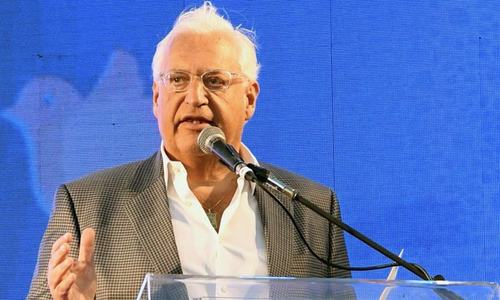WASHINGTON: Egypt, Jordan and Morocco have informed the Trump administration they will attend a US-led conference in Bahrain this month on proposals for boosting the Palestinian economy as part of a coming US peace plan, US officials said on Tuesday.
Egypt and Jordan’s participation is considered especially important since historically they have been key players in Israeli-Palestinian peace efforts and are also the only Arab states to have reached peace agreements with Israel.
However, Palestinian leaders’ decision to boycott the June 25-26 conference has raised doubts about its chances for success. They have shunned a broader diplomatic effort that US President Donald Trump has called the “deal of century,” which they see as likely to be heavily tilted in favour of Israel and denying them a state of their own.
Saudi Arabia, Qatar and United Arab Emirates have confirmed their attendance
Despite that, White House senior adviser Jared Kushner, Trump’s son-in-law and a chief architect of the long-delayed peace plan, is pressing ahead with arrangements for the Bahrain meeting, where the economic components are expected to be unveiled as the first step in the plan’s rollout.
Acceptance of the invitation to the conference by Jordan and Egypt will bring to the table two countries that border both Israel and Palestinian areas.
Saudi Arabia, Qatar and the United Arab Emirates have previously confirmed their attendance, a White House official said.
The official declined to say what level of representation the countries would send. US officials have said they were inviting economic and finance ministers, as well as business leaders from the region and around the world.
Global financial bodies including the International Monetary Fund (IMF) and World Bank also plan to be present.
US officials have been vague about the timing for the second phase of their initiative, which would be the release of proposals for resolving the thorny political issues at the core of the Israeli-Palestinian conflict.
With Israel heading for new elections in September after Prime Minister Benjamin Netanyahu failed to meet a deadline to form a government, uncertainty is expected to further delay the full release of the plan.
Most experts are sceptical the Trump administration can succeed where decades of US-backed efforts have failed.
Published in Dawn, June 12th, 2019














































